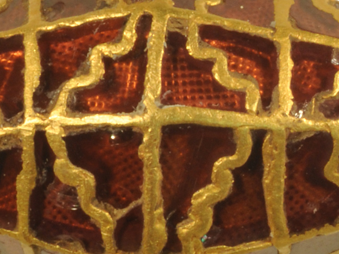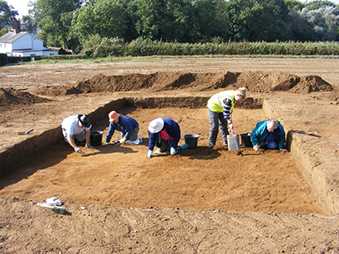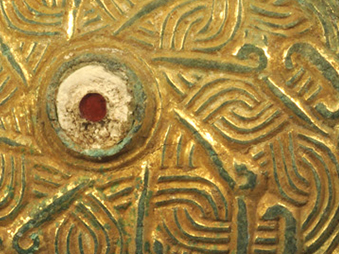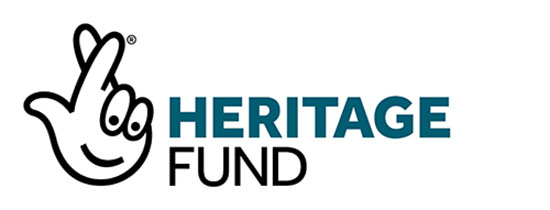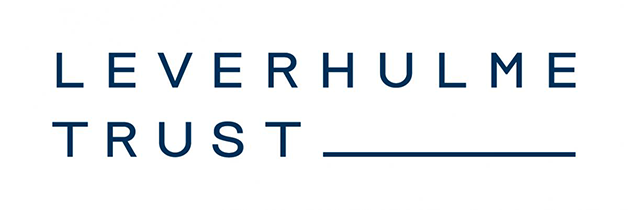After 12 years of archaeological investigation, we have identified the site of the early East Anglian royal settlement at Rendlesham, first mentioned in the 7th century by Bede in his Ecclesiastical History of the English People.
Discover our new live series of free online talks Behind the Scenes: Analysing Anglo-Saxon Rendlesham and meet the experts who have been analysing the archaeological material from this internationally important site.
For the first time, the experts will be sharing their recent work, which tells us even more about Rendlesham as a place and its connections with the wider Anglo-Saxon world.
The Rendlesham site is on private farmland and has no public access.
Further work is being undertaken in 2020-2024 as part of the community archaeology project Rendlesham Revealed. For updates or to get involved in the project, sign up to our e-newsletter.
Watch the Videos
Rendlesham and the East Anglian Kingdom
Christopher Scull (Honorary Visiting Professor at University College London and Cardiff University)
Since 2017, an expert team has been working to analyse the site and finds and publish the results, funded by the Leverhulme Trust and led by Prof Christopher Scull. This talk introduces the archaeology of Rendlesham and explores what the site, which is the largest and materially the richest settlement of its time known in England, can tell us about the rulers and the kingdom of the East Angles.
Originally broadcast live on Wednesday 9th September 2020
Rendlesham in the Landscape
Tom Williamson (Landscape historian and Professor of Landscape History, University of East Anglia)
This talk will explain how Landscape History can help us understand Anglo-Saxon Rendlesham. Using historic maps and documents and looking at the surviving landscape features in the countryside today, we can throw new light on the environment of the Rendlesham site and on the extent of the territory it exploited. We can also understand more about the landscapes associated with other contemporary elite sites in East Anglia, and thus help place Rendlesham within its wider political and economic contexts.
Originally broadcast live on Monday 14th September 2020
Exploring the Metal Objects from Anglo-Saxon Rendlesham
Faye Minter (Senior Archaeological Officer, Suffolk County Council)
The quantity and quality of the metal objects found at Rendlesham reveal its importance, both within the Kingdom of the East Angles and beyond. This talk will delve into the objects and compare them with those from other East Anglian sites, exploring Rendlesham’s place in the wider Anglo-Saxon world.
Originally broadcast live on Wednesday 30th September 2020
The Money of Anglo-Saxon Rendlesham
Andrew Woods (Senior Curator, Yorkshire Museum)
The Anglo-Saxon coins found at Rendlesham are unparalleled elsewhere in England. They show somewhere at the forefront of coinage, a place of wealth and power. Some coins came from across Europe, while others were likely made in Rendlesham. This talk will use Early Medieval coins to explore the networks and wealth that make Rendlesham such an unusual and important site.
Originally broadcast live on Friday 2nd October 2020
Metalworking at an Anglo-Saxon Palace: Analysis of copper alloys and precious metal objects from Rendlesham
Eleanor Blakelock (Metals Specialist)
The excavations at Rendlesham uncovered a range of gold, silver and copper alloy (non-ferrous) metalworking waste including, scrap metal, globules of spilt metal, casting sprues and unfinished objects were recovered. This all suggests an elite manufacturing site with a metalworking workshop. Scientific analysis can tell us how the metalworking workshop at Rendlesham functioned, what technology was used, and even provide a glimpse into the craft-workers thought process, bringing us one step closer to understanding the Anglo-Saxons.
Originally broadcast live on Monday 5th October 2020
Beasts and Feasts: Rendlesham’s Animal Resources
Charlotte Scull (Animal Bone Specialist)
Animals were at the centre of Anglo-Saxon culture, from noble horses to hunting dogs to the ordinary pigs and chickens, the animals excavated at Rendlesham would have not only been used for survival but were also symbols of wealth and power. Zooarchaeological evidence can answer some of the big questions surrounding land use, husbandry, and exchange, as well as help us to understand the beliefs and daily lives of the people living at Rendlesham. This talk will outline some of the principles and methods of zooarchaeological analysis and explain what they can tell us about the animal bone excavated at Rendlesham.
Originally broadcast live on Saturday 17th October 2020
Rendlesham and south-east Suffolk in the fourth century and beyond
Jude Plouviez (Archaeologist and Roman Specialist)
Finds from Rendlesham, especially the coins, have highlighted questions about the final years of Roman control in East Anglia. Was Rendlesham one of the places where we can trace late Roman authority being passed on? Or is there still a gap between Roman and Anglo-Saxon?
Originally broadcast live on Tuesday 20th October 2020
Charting territorial developments in south-east Suffolk: Rendlesham and its administrative landscape
Stuart Brookes (Senior Research Associate at University College London and Early Medieval Specialist)
Early territories can be reconstructed from place-names, historical and archaeological evidence. The case study of Rendlesham allows us to map out the communities that existed in south-east Suffolk and perhaps the political relationships that existed between them. By plotting archaeological finds alongside techniques of retrogressive landscape analysis, we can reconstruct the evolution of an administrative landscape across the early medieval period, and place Rendlesham in its territorial context.
Originally broadcast live on Tuesday 3rd November 2020
What was so special about “Rendel’s homestead”? Exploring Rendlesham and its wider environment through place-names
Eleanor Rye (Place-names and Historical Linguistics Specialist)
A handful of place-names hint at the extraordinary nature of Rendlesham, indicating connections with the Roman town at Hacheston and the princely burials at Sutton Hoo. Other place-names tell more ordinary stories about landscape and settlements of the wider area. This talk will explore what place-names tell us about Rendlesham as a remarkable place but will also discuss the more ordinary names which allow us to understand Rendlesham’s place in the wider environment of south-east Suffolk.
Originally broadcast live on Friday 13th November 2020
Anglo-Saxon Ipswich
Keith Wade (Former Suffolk County Archaeologist)
Ipswich is one of a handful of towns in north-west Europe with origins in the seventh century. In the 8th century it was a major craft production centre engaged in international trade. This talk will examine the origin and development of the town and its possible relationship to the East Anglian royal house at Rendlesham.
Originally broadcast live on Monday 16th November 2020
Supported by:
The series is a partnership between two projects: ‘Rendlesham Revealed: Anglo-Saxon Life in South East Suffolk’ funded by the National Lottery Heritage Fund, and ‘Lordship and Landscape in East Anglia 400-800CE’ funded by the Leverhulme Trust.
